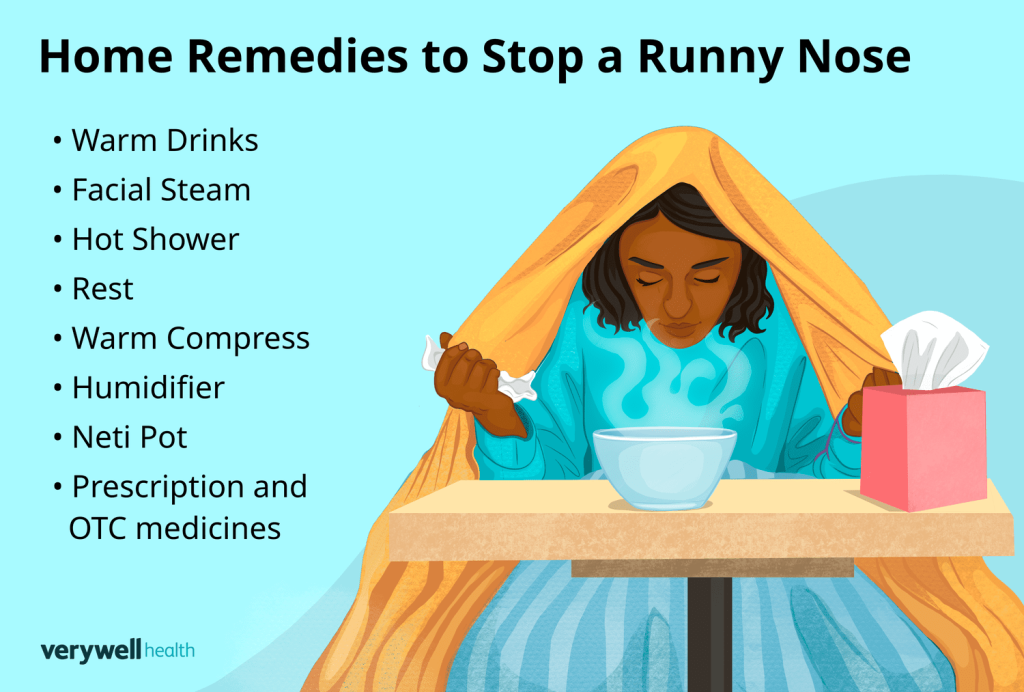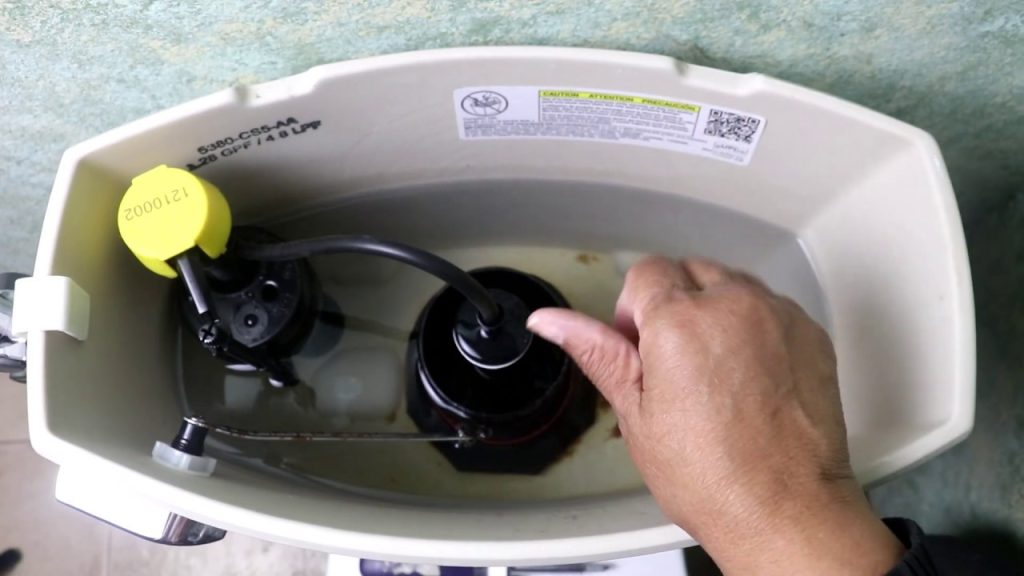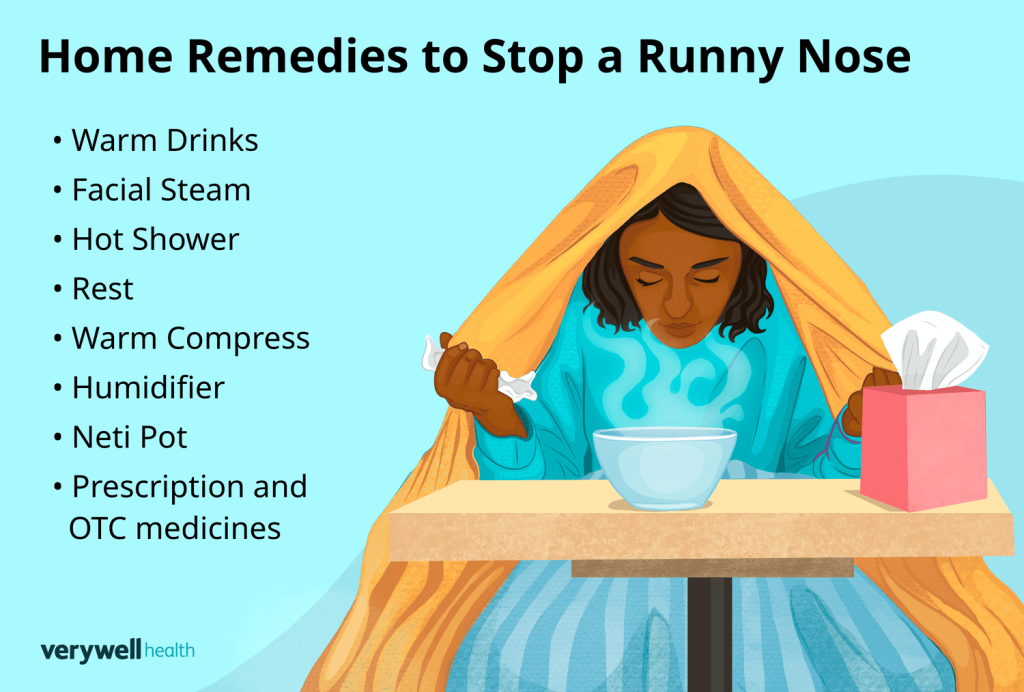A running nose can be quite annoying. It interferes with daily activities and comfort.
Struggling with a running nose is common, especially during allergy season or when you have a cold. It can lead to constant sniffles, and an endless supply of tissues becomes your best friend. But, you don’t have to suffer quietly.
Understanding how to control a running nose can bring you relief and help you get back to your routine. Whether it’s due to a change in weather, an allergy, or a cold, there are effective ways to manage this bothersome symptom. Let’s explore some easy and practical methods to control a running nose and improve your daily life.
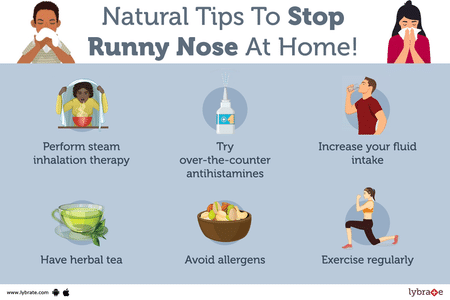
Credit: www.lybrate.com
Causes Of A Running Nose
A running nose can be very annoying. It can disrupt daily activities. There are many reasons why your nose may run. Understanding the causes can help manage symptoms better.
Common Triggers
Many factors can trigger a running nose. One common cause is cold weather. When it’s cold, the body produces more mucus. This can lead to a running nose. Dust and strong odors can also cause it. Inhaling irritants makes the body react. This reaction often results in a running nose. Other common triggers include spicy foods and physical exercise. These can increase mucus production.
Seasonal Allergies
Seasonal allergies are another major cause. Pollen from trees, grasses, and weeds can cause allergies. These allergens can make your nose run. During certain seasons, pollen levels are high. This can lead to frequent running nose. Besides pollen, mold and dust mites can also cause issues. They thrive in damp and warm places. Exposure to these allergens can trigger symptoms.
Home Remedies
Dealing with a runny nose can be annoying. Luckily, some home remedies can help. These methods are easy to use and often effective. Let’s explore some of the best remedies to control a running nose.
Steam Inhalation
Steam inhalation helps clear nasal passages. Boil a pot of water. Place a towel over your head. Lean over the pot, keeping a safe distance. Inhale the steam for 10 minutes. This can reduce nasal congestion and thin mucus.
Saline Nasal Spray
Saline nasal spray can be very effective. It helps moisturize dry nasal passages. To make it at home, mix salt with warm water. Use a dropper to apply the solution in each nostril. This can soothe irritation and clear out mucus.
Dietary Changes
When dealing with a running nose, certain dietary changes can help. The right foods and drinks can relieve symptoms and speed up recovery. Let’s explore how hydration and spicy foods can make a difference.
Hydration
Staying hydrated is key to controlling a running nose. Drink plenty of water. It helps thin the mucus. This makes it easier to expel. Warm teas and broths are also beneficial. They soothe the throat and provide necessary fluids. Avoid alcohol and caffeine. They can dehydrate your body, making symptoms worse.
Spicy Foods
Spicy foods can clear nasal passages. Ingredients like chili peppers contain capsaicin. Capsaicin helps reduce mucus and inflammation. Add spicy foods to your diet. Think about dishes with hot peppers, garlic, or ginger. These can open up your sinuses and provide relief. But be careful if you have a sensitive stomach. Start with small amounts to see how your body reacts.
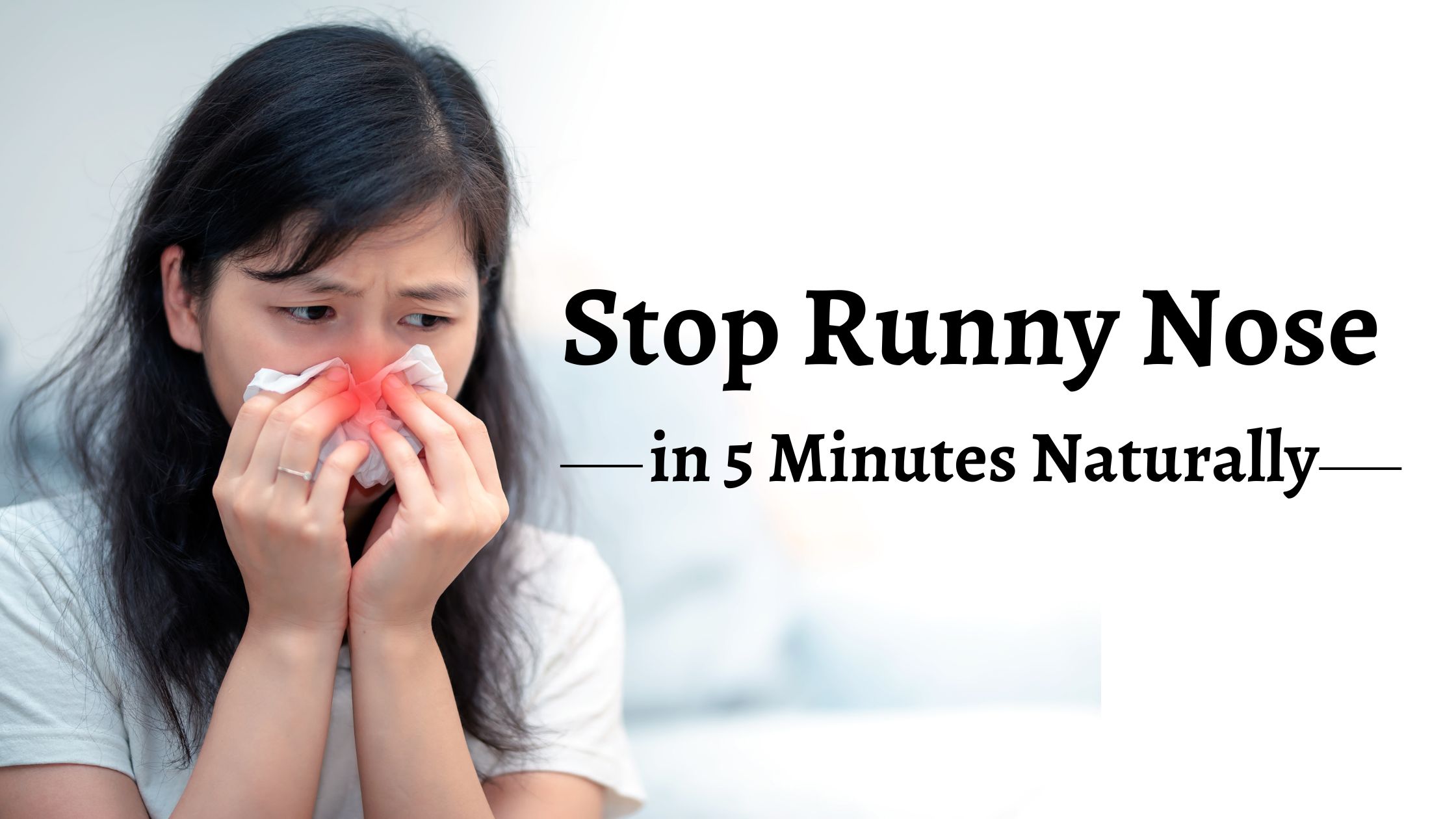
Credit: www.pharmacy24.ca
Over-the-counter Solutions
Dealing with a running nose can be frustrating. Thankfully, there are over-the-counter solutions that can help. These remedies are easy to find and can provide quick relief. Here, we will discuss antihistamines and decongestants as effective options.
Antihistamines
Antihistamines help reduce the symptoms of allergies. These include a runny nose, sneezing, and itchy eyes. They work by blocking the action of histamine, a substance in the body that causes allergic symptoms.
Common over-the-counter antihistamines include:
- Benadryl (diphenhydramine)
- Claritin (loratadine)
- Zyrtec (cetirizine)
Antihistamines can cause drowsiness, so it is best to take them at night. Non-drowsy options like Claritin are available for daytime use.
Decongestants
Decongestants help by shrinking the blood vessels in the nasal passages. This reduces swelling and opens up the airways, making it easier to breathe. They provide relief from nasal congestion and a runny nose.
Common over-the-counter decongestants include:
- Sudafed (pseudoephedrine)
- Afrin (oxymetazoline)
- Vicks Sinex (phenylephrine)
Decongestants can cause side effects like increased heart rate and insomnia. They should not be used for more than three days to avoid rebound congestion.
Essential Oils
Dealing with a running nose can be frustrating. Essential oils can offer relief. They are natural and effective. Let’s explore two of the best: Peppermint Oil and Eucalyptus Oil.
Peppermint Oil
Peppermint oil is a popular choice. It contains menthol, which helps to clear nasal passages. Inhaling it can reduce nasal congestion. Here’s how to use peppermint oil:
- Add a few drops to a bowl of hot water.
- Cover your head with a towel.
- Inhale the steam for 10 minutes.
Repeat this process twice a day. You will notice a difference.
Eucalyptus Oil
Eucalyptus oil is another effective remedy. It has anti-inflammatory properties. It can help reduce swelling in nasal passages. Here’s how to use eucalyptus oil:
- Add a few drops to a diffuser.
- Run the diffuser in your room.
- Breathe in the aroma for relief.
You can also add it to hot water and inhale the steam. This method works well during the night.
| Oil | Method |
|---|---|
| Peppermint Oil | Inhale steam from hot water |
| Eucalyptus Oil | Use in a diffuser or inhale steam |
Both oils can help you breathe easier. Try them and find which works best for you.
Lifestyle Adjustments
Dealing with a running nose can be annoying. Making some lifestyle adjustments can help. Simple changes can reduce symptoms and improve your comfort.
Humidity Control
Dry air can make a running nose worse. Using a humidifier adds moisture to the air. This helps keep nasal passages moist. Aim for indoor humidity between 30% and 50%. Monitor humidity with a hygrometer. If you don’t have a humidifier, try placing bowls of water around your home. This also helps add moisture to the air.
Avoiding Irritants
Many irritants can trigger a running nose. Smoke, strong perfumes, and cleaning products can be culprits. Try to avoid these triggers. Opt for unscented and natural products when possible. Keep your home free of dust and allergens. Vacuum regularly and wash bedding often. Avoiding irritants can significantly reduce symptoms.
When To See A Doctor
Dealing with a running nose can be quite a nuisance. While most cases are harmless and resolve on their own, there are times when professional medical advice is necessary. Understanding when to see a doctor is essential for your health.
Persistent Symptoms
If your running nose lasts more than 10 days, it may indicate something more serious. Persistent symptoms are a sign that you should consult a doctor. Other symptoms like high fever, severe headache, or sinus pain also require medical attention.
| Symptom | Duration | Action |
|---|---|---|
| Running Nose | More than 10 days | See a doctor |
| High Fever | More than 3 days | Seek medical help |
| Severe Headache | Immediate | Consult a healthcare provider |
Associated Illnesses
A running nose can be linked to other illnesses. If you experience symptoms such as coughing, wheezing, or shortness of breath, it may point to conditions like bronchitis or asthma. In such cases, it is crucial to see a doctor.
Some associated illnesses to watch for include:
- Sinusitis
- Allergies
- Respiratory infections
Pay attention to these symptoms. Early medical intervention can prevent complications. Always prioritize your health and seek professional advice when needed.

Credit: my-doc.com
Preventive Measures
Preventing a running nose can save you from discomfort and constant tissue use. Here are some easy preventive measures to help keep your nose dry and healthy.
Proper Hygiene
Maintaining proper hygiene is key to preventing a running nose. Regular hand washing is essential. Use soap and water for at least 20 seconds.
- Wash hands before eating.
- Wash hands after using the restroom.
- Avoid touching your face with unwashed hands.
Keep your surroundings clean. Disinfect frequently touched surfaces like door handles and mobile phones.
Use tissues or your elbow to cover coughs and sneezes. This prevents the spread of germs.
Vaccinations
Vaccinations play a crucial role in preventing infections that cause a running nose. Getting vaccinated can help you stay healthy.
Consider the following vaccinations:
- Flu Vaccine: Helps prevent seasonal flu.
- Pneumonia Vaccine: Protects against certain types of pneumonia.
- COVID-19 Vaccine: Reduces the risk of severe illness from COVID-19.
Stay updated with your vaccination schedule. Consult your healthcare provider for more information on recommended vaccines.
Frequently Asked Questions
What Causes A Runny Nose?
A runny nose is caused by excess mucus. It can be due to colds, allergies, or irritants.
How Can I Stop A Runny Nose Fast?
To stop a runny nose quickly, try using a saline nasal spray. Stay hydrated and rest.
Are There Home Remedies For A Runny Nose?
Yes, home remedies include steam inhalation, warm compresses, and drinking hot fluids like tea.
Can Allergies Cause A Runny Nose?
Yes, allergies often trigger a runny nose. Common allergens include pollen, dust, and pet dander.
Conclusion
A runny nose can be frustrating. Simple steps can help manage it. Stay hydrated. Use a humidifier. Try over-the-counter remedies. Consult a doctor if symptoms persist. Remember, keeping your environment clean is crucial. Avoid allergens and irritants. Practice good hygiene to prevent infections.
These tips can provide relief and help you feel better. Stay healthy and breathe easy.

